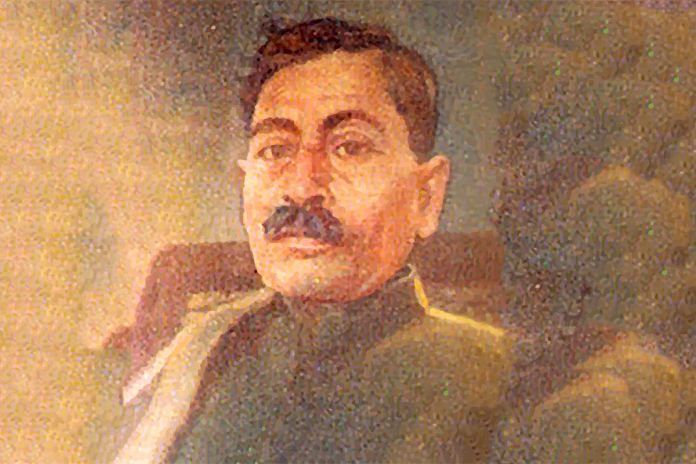Premchand’s women characters are definitely stronger than his male ones and fight battles to liberate their sexuality.
If there is one day in the calendar that people in the ‘Hindi belt’ remember after Shrawan Shukla Saptami, which is the birthday of Tulsi Das, it has to be 31 July— the birthday of Munshi Premchand.
He was a people’s writer.
And yet during his last days, the ailing Premchand was resourceless and helplessly waiting for his death. Sitting by his bedside, his contemporary Nirala lamented the lack of awareness about the significance of a cultural master who gave a society its tongue.
“Whenever I see Rajendra Prasad or Jawaharlal Nehru, I remember Premchand and my heart is filled with joy and devotion,” Nirala writes.
The respect he commanded as a writer in his lifetime and in posteriority is exceptional. In libraries, the copies of his books bear the impressions of the fingers of generations.
Also read: Munshi for millennials: Premchand and body building tips for the 21st century
Premchand had started writing in Hindi from Urdu. But he continued to write in both the languages till the end. Modern Hindi was in its early days when Premchand entered the literary scene. But in a very short span of time, he took it to such a height that literary giants like Tagore recognised him easily as the most representative voice of the language. Premchand developed a fictional prose which capture the lives, joys and struggles of ordinary people.
“Gam ki kahani maze lekar kahna”, wrote Premchand in the essay Kahani Kala or The Art of Fiction. Tell the story of despair with joy. Do not let your pain disable your faculty to see life in its fullness. That is why he could give us an unforgettable character like Hamid who deals with the cheerless circumstances of life with humour. It would not be wrong to say that Premchand is the only writer in Urdu and Hindi who created characters we still use as measures to judge our emotional selves.
Premchand is popularly known as the chronicler of the kisaan or agrarian world of India. In Godaan, the tragic tale of Hori crushed by a ruthless nexus of state-landlords-religious institutions made him the true representative voice of the struggling farmer in India. His novels and stories show that Premchand was also a keen observer of the emerging urban universe of India, its institutions and new professional classes.
Women are at the centre of his fictional world. He looks at them not only as mothers or sisters or daughters. He tries to understand their desires and depicts their struggle to free themselves from the shackles of traditional patriarchal families. Kusum of Sevasadan, Sushila, Saqina, Munni of Karmabhumi, Jalpa of Gaban, Nirmala of Niramala, Sophia of Rangabhumi, Dhania, Sona, Rupa, Siliya of Godaan are fiercely independent women.
Doctor Malati in Godaan is one of the earliest modern women professionals in Hindi fiction who refuses to be intimidated by the social stature of her lover Professor Mehta and declines his offer of marriage. Instead, she proposes a companionship of equality. This is arguably the first live-in relationship in Hindi fiction. Premchand’s women characters are definitely stronger than his male ones.
It can be seen that his women are fighting a battle to liberate their sexuality. It has largely gone ignored but it is high time we reread his fiction from this angle.
A deeply political man, Premchand did not allow it to make him one-dimensional. He was keenly interested in the drama of human life and its complexities. He could see that there is a constant battle between pettiness and the sublime, not only in society but also within the individual. As Jawaharlal Nehru wrote later, they were the children of Gandhi era and it was impossible for them to be imprisoned by smallness.
Premchand lived in the times of the anti-colonial struggle, also a period of bitter Hindu-Muslim strife. Even in the most violent days, he was unwavering in his belief that a majoritarian Hindu politics would destroy India. He wrote in Vividh Prasang, a collection of essays, that religious fundamentalism is too ashamed to present itself in the nude, and often wears the cloak of culture to find acceptability. Like Gandhi, Nehru, Bhagat Singh and Sarojini Naidu, he had this rare clarity and kept warning his readers that majoritarian or communal politics was cowardly, and that it always appears in the garb of culture to deceive people.
The land of Premchand is now ravaged by that majoritarian ideology and politics. Junaid, the new Hamid (the character in Eidgah), can now be killed on his way home after shopping for Eid.
Apoorvanand teaches Hindi at Delhi University.



